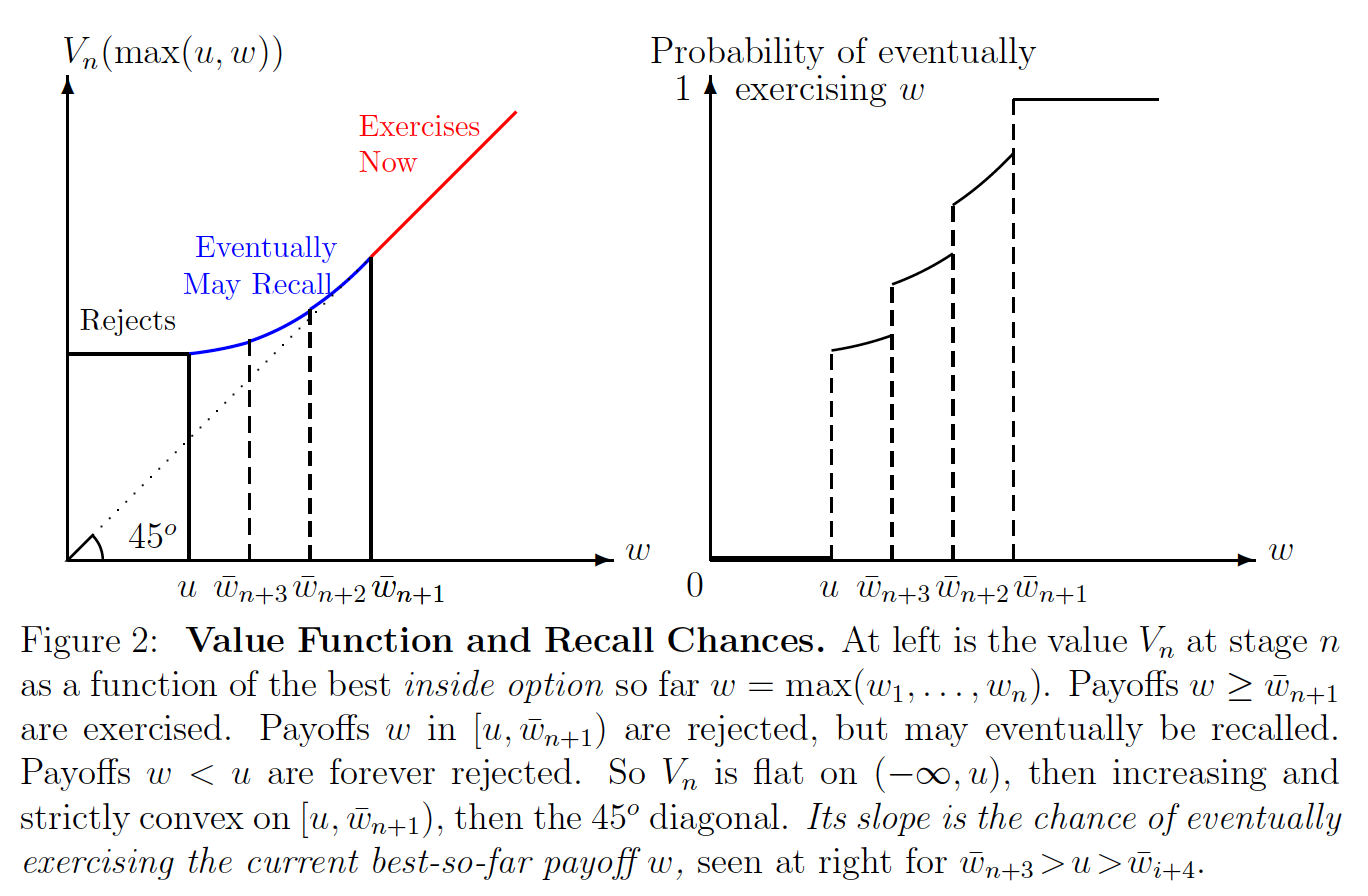“Optimal Sequential Search Among Alternatives”, with Michael Choi
We explore costly sequential search among finitely many risky options, and an outside option. Payoffs are the sum of a known and hidden random factor.
(a) We resolve a long open question about how riskier payoffs impact search duration: expected search time is higher for more dispersed idiosyncratic noise.
(b) Since options differ ex ante, we incorporate selection effects into search: Counterintuitively, with few options, the quitting chance falls if search costs rise; also, while stopping rates rise over time, earlier options are recalled more.
(c) We find that the stationary search model is a misleading benchmark: For as the number of options explodes, the recall chance is bounded away from zero if the known factor has a distribution without a thin tail (eg. exponential).
(d) A special case of our model captures web search engines that rank order options: We prove that the “click through rate” (the chance of initiating a search) is a poor quality measure since it falls in accuracy for expensive goods.

Lones Smith
My Homepage
